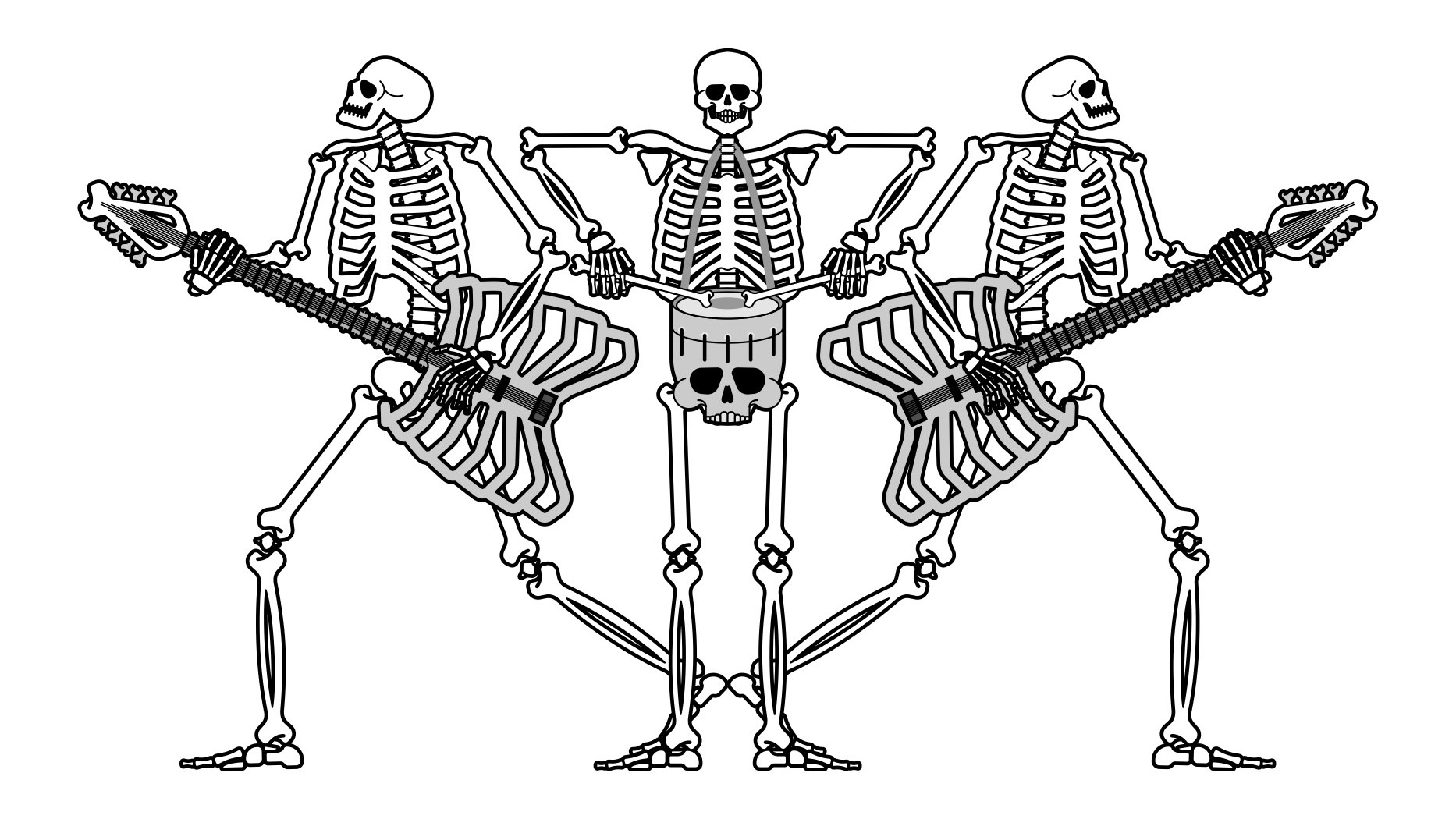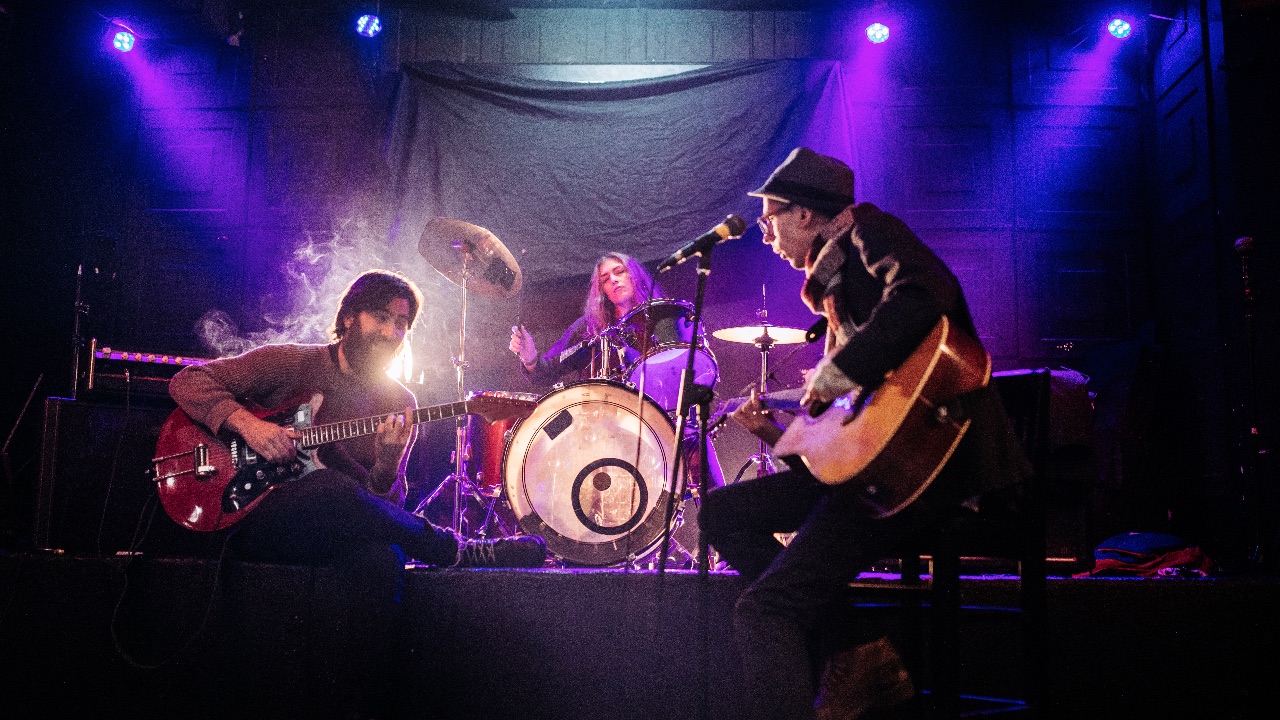"In the first half of the '80s, there were 146 weeks when bands were number one in the UK. In the first half of the '90s, 141. In the first 5 years of this decade... 3": Bands are dying. Why?
The decline of the band has become a feverish talking point recently. But what are the real reasons behind the lack of enthusiasm for both starting – and listening to – bands in the 2020s…

They were once the linchpins of the music industry, but today, the ever-shifting tides of economics, coupled with technology and a lack of youth interest seems to have rendered the band an obsolete concept. Should we be worried – or is this just another natural evolution of popular culture?
Though it’s something we’ve all been conscious of, the speed of the drop-off in new bands is pretty alarming once you examine the stats.
In a recent episode of The Rest is Entertainment podcast, author and television presenter Richard Osman deployed some jaw-dropping data that underlined the plummeting appeal of bands.
“We’ve had half a decade roughly so far, the first half of the 2020s.” Osman said, “I looked at the first half of the 1980s. There were 146 weeks when bands were number one [in the UK charts]. In the first half of the 1990s, there were 141 weeks when bands were number one.
"In the first five years of this decade, three weeks. One of which was the Radio One Live Lounge All Stars, most of whom were soloists anyway. One of which was The Beatles [with Now and Then] and one of which was Little Mix – the only kind of official band who’ve had a single week at number one in this entire decade.”
Picking up on this story and venturing his own lived experience was Rick Beato. His contention is that the rise of manufactured pop groups, such as N’Sync and Backstreet Boys in the 1990s began the swing away from chart-topping acts writing their own material, relying instead on co-writer/producers or writer/producers that would tackle the construction of their monolith hits.
“This was where people like Max Martin start to come on the scene.” Beato says, before explaining that the trend for writing with external songwriters began to become more prominent in rock music too.
“I know because I was part of this thing; being a producer/songwriter. You started to see artists, like Aerosmith, that had Diane Warren write the biggest hit they ever had – their only number one – I Don’t Want to Miss a Thing.”
Beato continues to explain how bands in the late 90s and early 2000s almost invariably would have producers and songwriters with their names in band's writing credits. Rick ascribes this to the heavier involvement of labels, wanting to guarantee they had huge hits in the face of rocketing costs and diminishing returns.
In Rick’s view, this growing trend lead to the ultimate demise of the band in industry viability terms. “If you’re going to have someone, like myself for example that the label’s going to hire to co-write with the singer of a band, and I play all the parts on it – and get a session drummer in even though the band’s got a drummer… by 2010 it just made no sense to actually sign bands because it wasn’t worth it.”
So, it costs more money – and is more risky – to sign a new, self-writing band to your record label if you’re aiming to place high in the charts. It stands to reason that interest in both starting and listening to new bands from listeners began to wane.
Want all the hottest music and gear news, reviews, deals, features and more, direct to your inbox? Sign up here.
The lack of enthusiasm for new bands within the budget-conscious industry is mirrored in the streaming habits of today’s listeners. As Rick B explains, out of the top 400 artists on Spotify, less than 1% (just three bands) originated from the last ten years.

Understandably, these widely-shared stats have triggered some vigorous forum chatter on the topic, which tends to orbit five central points that go some way to explaining the decline…
1. THE NEED TO START A BAND
If you were a creative musician, or songwriter at any point up until the last ten or so years, to build an arrangement where multiple real instruments were in sync at the same time you’d need to find musicians to work with and record with. DAWs such as Logic, Ableton Live and Cubase make this now incredibly easy to achieve solo.
2. THE HUNGER TO PERFORM LIVE
Similar to the above point, to get your tracks played out to a live audience with multiple instruments, you’d need a live band (or session players, if you had the budget.)
These days, it’s easier than ever to perform live and trigger instruments using performance tools like Ableton's Push. Perhaps most crucially, today you don’t need to leave your house to connect with audiences, and can stream from your studio via TikTok, Instagram, Twitch and various other platforms.
3. THE COLLABORATIVE NATURE OF BANDS
Linked with the above, it’s far simpler (using SoundCloud, Bandcamp, LANDR and various other online communities) to work with other musicians, get instant feedback and collaborate on each others' music.
And, if you fall out with the person you’re working with, it doesn’t cripple your entire creative outlet. Something Rick Beato points out; “Forming and maintaining a band is challenging due to interpersonal conflicts.”
4. CULTURAL POWER
As the industry has trended away from promoting and investing in bands, so too has the perception of power and status that being in a successful band once had.
Being in Led Zeppelin back in 1973 might have been tantamount to ascending to godhood, yet today the allure of starting a band (and the hotel-trashing, Demi-god status it once exuded) no longer has the same draw (or likelihood of happening).
Coupled with the fact that the effort needed to build, maintain, write, promote and live a band-oriented life doesn’t jibe with the instant gratification of social media.
5. INVESTMENT AND RETURN
Bearing all the above in mind, and in light of the shuttering of grassroots music venues across the world for new artists (another story entirely…) the expense of running a band, from gear, to touring, to promotion, to equal splitting any return between members, is a solid wall.
It's enough to dissuade even those who do want to buck the trend and start a band from running the risk.
So, by 2030, might there be no new bands at all in the Spotify top 400? Or, are we on the cusp of a resurgence? (Particularly in the light of the burning interest in Oasis’s upcoming reunion gigs).
Let us know your thoughts.


I'm Andy, the Music-Making Ed here at MusicRadar. My work explores both the inner-workings of how music is made, and frequently digs into the history and development of popular music.
Previously the editor of Computer Music, my career has included editing MusicTech magazine and website and writing about music-making and listening for titles such as NME, Classic Pop, Audio Media International, Guitar.com and Uncut.
When I'm not writing about music, I'm making it. I release tracks under the name ALP.
